SUMMARY
This is AI generated summarization, which may have errors. For context, always refer to the full article.
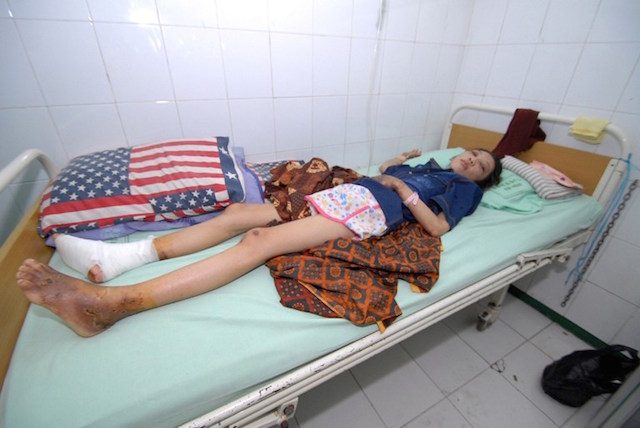
HONG KONG, China – Erwiana Sulistyaningsih has come a long way from the Indonesian maid who came to Hong Kong in May 2013 looking for a way to earn more money, only to find herself starved and tortured for months.
On January 10, 2014, a very weak and skinny Erwiana, who was 23 years old at the time, was put on a plane back home to Indonesia with only HK$100 ($12.90) and a t-shirt by her employer, Law Wan-tung. She had become too weak to walk after almost 8 months of torture.
For months on end, she lived on nothing but bread and rice, she would later tell the court. She slept only four hours a day and was regularly punched and beaten.
“She put a vacuum cleaner into my mouth… and twisted it round my lips. It was bleeding and very painful,” Erwiana would later say in court. Law also pushed her off a ladder.
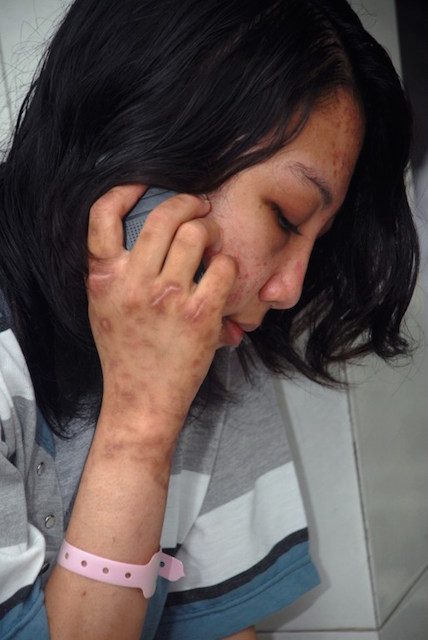
“She often hit me… sometimes she would hit me from behind, sometimes she hit me in the front. I was hit so often sometimes I got a headache… She hit me in my mouth (so) I had difficulty breathing.”
On January 20, Law was arrested while trying to leave Hong Kong for Thailand.
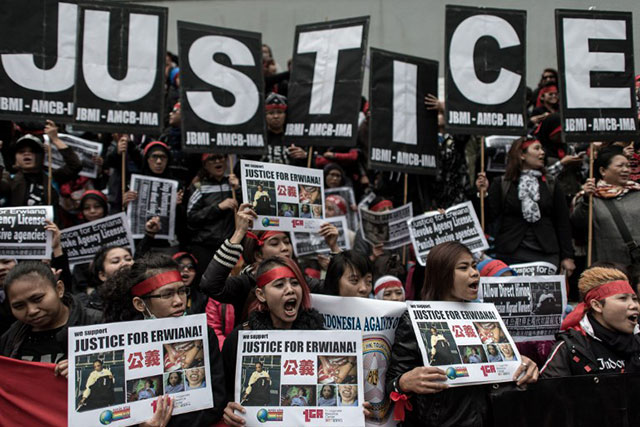
Erwiana’s story spread around the world on social media, sparking outrage. It drew angry crowds on to the streets of Hong Kong calling for better working conditions for domestic helpers and fuelled criticism over their poor treatment.
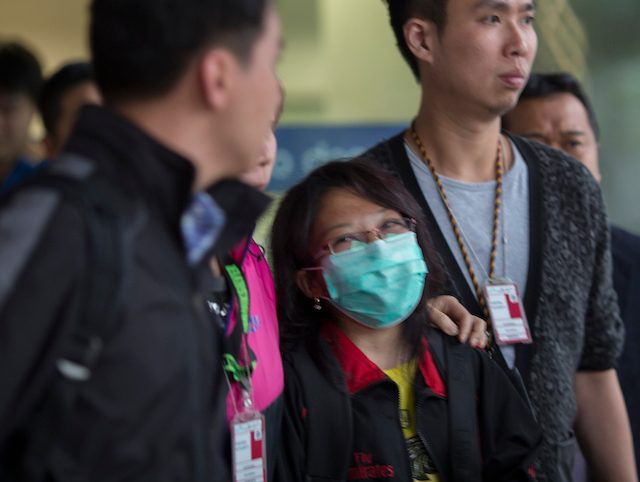
“Erwiana is advocating for better laws to protect others who may share her fate, placing a spotlight on the plight of a vulnerable and often invisible population. It is brave women like her who speak up for the voiceless who will create lasting change.”
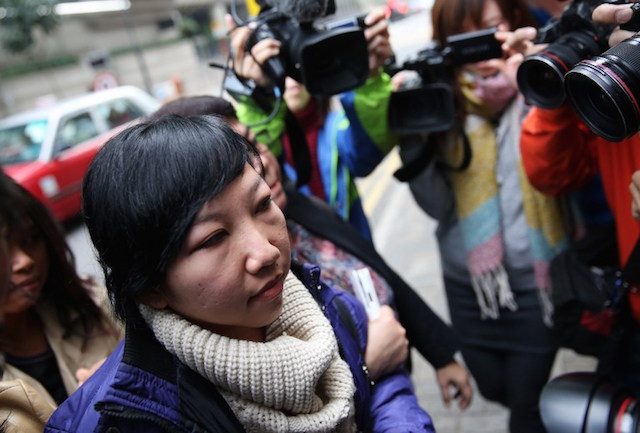
In December 2014, Law’s trial began. Law faced 20 charges in court – also relating to two other former domestic helpers – including grievous bodily harm with intent, criminal intimidation and failure to pay wages.
She pleaded not guilty to all but one of the charges against her, admitting only that she had failed to arrange insurance for Erwiana.
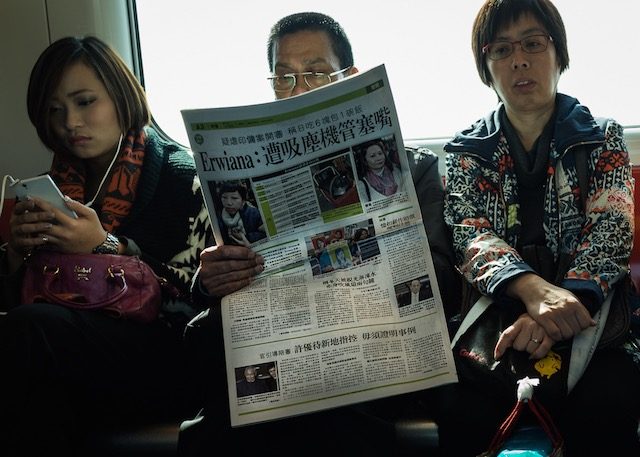
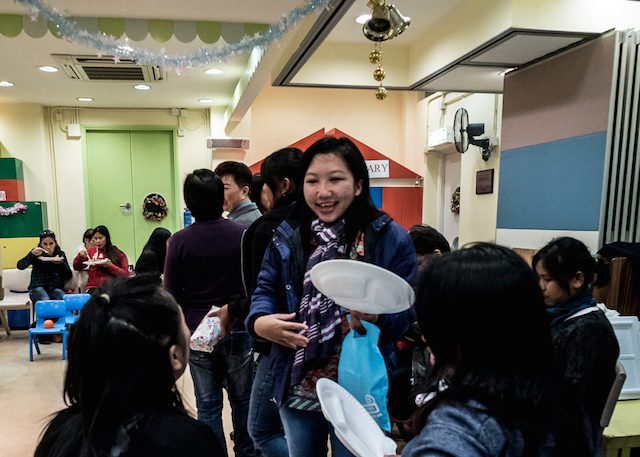
Erwi, as her friends call her in Hong Kong, has become an inspiration for other abused domestic workers in Hong Kong.
“In the beginning I didn’t want my case to be this big because it’s too much burden for me emotionally and psychologically,” she told the South China Morning Post.
“I’m happy because through my case other cases have been exposed,” she would also tell Cable Television News.
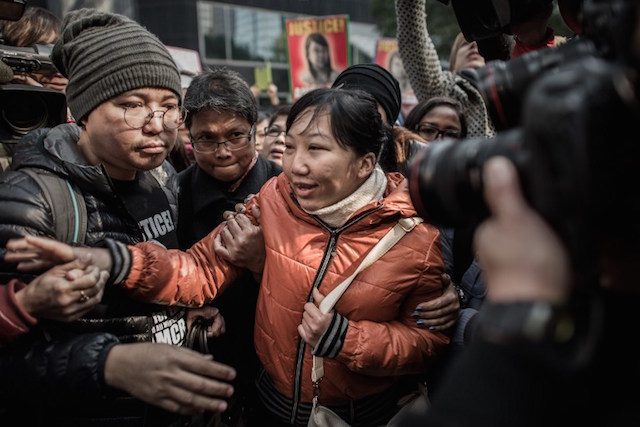
On February 10, 2015, the court found Law guilty of 18 of the 20 charges laid against her – a first in Hong Kong history.
“She was, for want of a better word, a prisoner on those premises,” the judge said. “She did not complain about the abuse because of fear… When Erwiana left Hong Kong, she was a shadow of her former self.”
“It’s a victory for Erwiana,” an ecstatic Aaron Ceradoy, program coordinator for the Asia Pacific Mission for Migrants, told AFP.
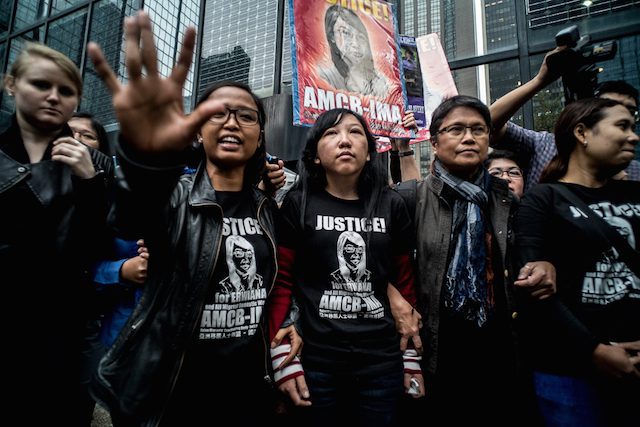
On February 27, 2015, Law, who had faced a maximum sentence of 7 years, was sentenced to 6 years in jail.
Judge Amanda Woodcock, in handing down the sentence, said that domestic staff are made vulnerable by a law which means they must live with their employer – which activists have long campaigned to change.
“Such conduct could be prevented if domestic helpers were not forced to live in their employer’s home,” she added.
Woodcock also highlighted the “significant fees” charged to domestic helpers by agencies in their home countries. “There must be an element of exploitation here… the domestic helper becomes trapped when they are unhappy, but cannot leave or change employers because the debt needs to be paid off,” she said.
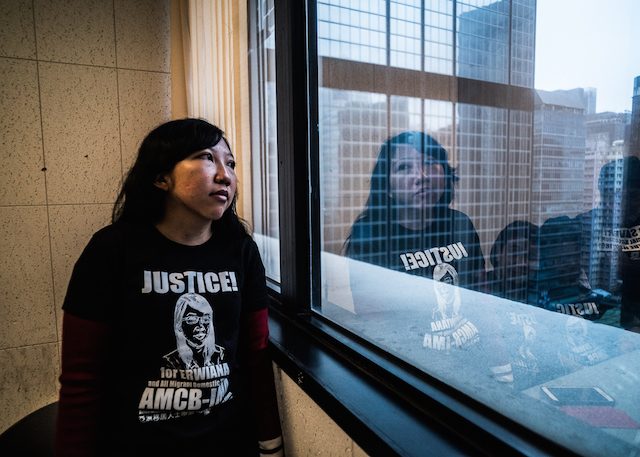
Wearing a T-shirt emblazoned with her own face and the word “justice”, Erwiana said she felt the 6-year sentence “doesn’t guarantee she (Law) will not hurt others”.
But she praised Woodcock.
“I sincerely appreciate the judgement of the judge, who today exposed that slavery in Hong Kong really exists,” Erwiana said via an interpreter.
“I hope that the Hong Kong government and Indonesia government will reform the regulations so other victims and cases not yet exposed can appear in the public.”
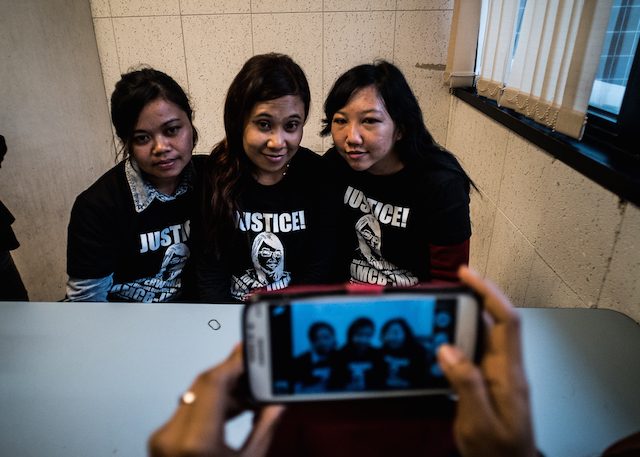
Despite the hardships, Erwiana, who used to described herself as a “simple village girl”, says she has forgiven Law, and now plans to study economics at a university in Indonesia and continue taking part in activities supporting the rights of migrant workers. – with reports from Xyza Cruz Bacani and Agence France-Presse/Rappler.com
Add a comment
How does this make you feel?
There are no comments yet. Add your comment to start the conversation.